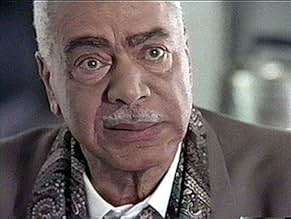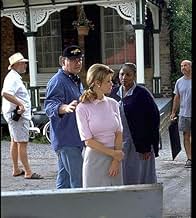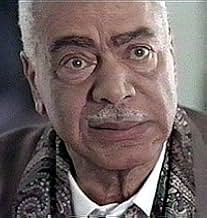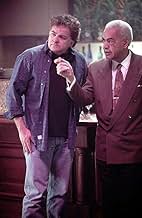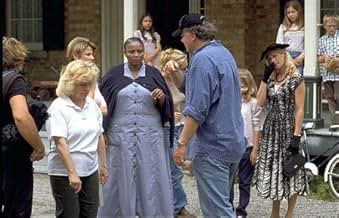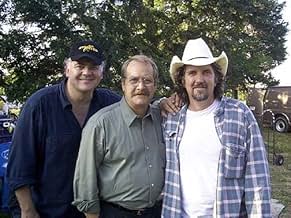NOTE IMDb
7,0/10
354
MA NOTE
Ajouter une intrigue dans votre languePrematurely deceased people are given the opportunity to correct something that went wrong in their lives and thus change them for the better.Prematurely deceased people are given the opportunity to correct something that went wrong in their lives and thus change them for the better.Prematurely deceased people are given the opportunity to correct something that went wrong in their lives and thus change them for the better.
- Récompenses
- 9 victoires et 9 nominations au total
Parcourir les épisodes
Histoire
Le saviez-vous
- AnecdotesThe character of Mr Smith played by Paul Popowich is more of a spiritual guide full of compassion than any other of the judges, just like a guardian angel should be-even for the dead.
- Bandes originalesChange
(theme song, season 2)
Written by Stephen Brackley, Glenn Morley
Performed by Rique Franks, Terry Hatty, Wayne St. John, Sharon Lee Williams
Commentaire à la une
I've just finished watching what I believe was the last episode of "Twice in a Lifetime". At the end of what seems to be a regular episode (though "regular" may not be the right word, since each episode in this series is different than the other and unique), Judge Othneil's reflection appears in the dark skies. Othneil, played by Albert Waxman, repeats few sentences he had said during the episode: "Why do the good die young? That should have been asked countless times." Another quote from the episode follows immediately: Othneil is told "You were quite a warier" and he answers "I had my days". Then few words appear: "In loving memory ; Al Waxman ; 1935-2001". Well, 66 is considered young nowaday.
I must tell you that I was quite astonished. I ran to the computer and entered IMDB where in Al Waxman's page I found out that he passed away during heart surgery. Now I was totally surprised - The episode was dealing with a person who has heart problems. The question is whether he should or should not pass ("again") a difficult open-heart surgery, when we know that the previous one did not succeed and left him with a permanent brain damage. At the end, during the actual surgery, it is seemed at first that the person who has undergone the operation has died. If it is true that stage actors' eternal wish is to die on stage during a play, this was quite an impressive way to say goodbye to an actor in a TV series, especially in one where he plays God's representative, dealing with life and death issues.
Without Judge Othneil, there can be no "Twice in a Lifetime", so this is clearly the end of the show (even though the writers managed to switch Mr. Jones with Mr. Smith between the first and the second season, so they can always bring in another figure instead, using any lame excuse, the way they did it in two episodes in the first season). While writing, it was now reminded to me that this was the only episode when a person on the "second-life" believes Smith is actually an angel, and at the end, Mr. Smith almost admits he is (when we, the audience, know that becoming an angel is actually his true wish since episode 1 and Othinel has been telling Smith few times in the last episodes that he is improving). I guess things get new meanings in perspective.
Now I have a question and if someone can answer it I would be really grateful: How could the screenwriters create such a great final episode? Had they first shoot one episode and then, when Waxman died, re-edited it? The editing of the repeating last sentences by Othneil was great, but for taking these two parts from the episode, they should have filmed him saying them at first; Have the producers planned to finish the show then, knowing that he may die soon?
One last thing: this whole issue reminds me the way the Drama teacher from "Fame" left that series during the eighties. Since the actor knew he was going to die, it was arranged in one of the episodes that the class would say good-bye to their teacher who had retired. At the last scene, when all the students hugged him, they cried. The actors have said later on, that these were real tears, knowing their partners condition.
Liron Dorfman, ISRAEL
I must tell you that I was quite astonished. I ran to the computer and entered IMDB where in Al Waxman's page I found out that he passed away during heart surgery. Now I was totally surprised - The episode was dealing with a person who has heart problems. The question is whether he should or should not pass ("again") a difficult open-heart surgery, when we know that the previous one did not succeed and left him with a permanent brain damage. At the end, during the actual surgery, it is seemed at first that the person who has undergone the operation has died. If it is true that stage actors' eternal wish is to die on stage during a play, this was quite an impressive way to say goodbye to an actor in a TV series, especially in one where he plays God's representative, dealing with life and death issues.
Without Judge Othneil, there can be no "Twice in a Lifetime", so this is clearly the end of the show (even though the writers managed to switch Mr. Jones with Mr. Smith between the first and the second season, so they can always bring in another figure instead, using any lame excuse, the way they did it in two episodes in the first season). While writing, it was now reminded to me that this was the only episode when a person on the "second-life" believes Smith is actually an angel, and at the end, Mr. Smith almost admits he is (when we, the audience, know that becoming an angel is actually his true wish since episode 1 and Othinel has been telling Smith few times in the last episodes that he is improving). I guess things get new meanings in perspective.
Now I have a question and if someone can answer it I would be really grateful: How could the screenwriters create such a great final episode? Had they first shoot one episode and then, when Waxman died, re-edited it? The editing of the repeating last sentences by Othneil was great, but for taking these two parts from the episode, they should have filmed him saying them at first; Have the producers planned to finish the show then, knowing that he may die soon?
One last thing: this whole issue reminds me the way the Drama teacher from "Fame" left that series during the eighties. Since the actor knew he was going to die, it was arranged in one of the episodes that the class would say good-bye to their teacher who had retired. At the last scene, when all the students hugged him, they cried. The actors have said later on, that these were real tears, knowing their partners condition.
Liron Dorfman, ISRAEL
Meilleurs choix
Connectez-vous pour évaluer et suivre la liste de favoris afin de recevoir des recommandations personnalisées
- How many seasons does Twice in a Lifetime have?Alimenté par Alexa
Détails
- Date de sortie
- Pays d’origine
- Site officiel
- Langue
- Aussi connu sous le nom de
- Twice in a Lifetime
- Lieux de tournage
- Société de production
- Voir plus de crédits d'entreprise sur IMDbPro
Contribuer à cette page
Suggérer une modification ou ajouter du contenu manquant

Lacune principale
By what name was Destins croisés (1999) officially released in India in English?
Répondre
